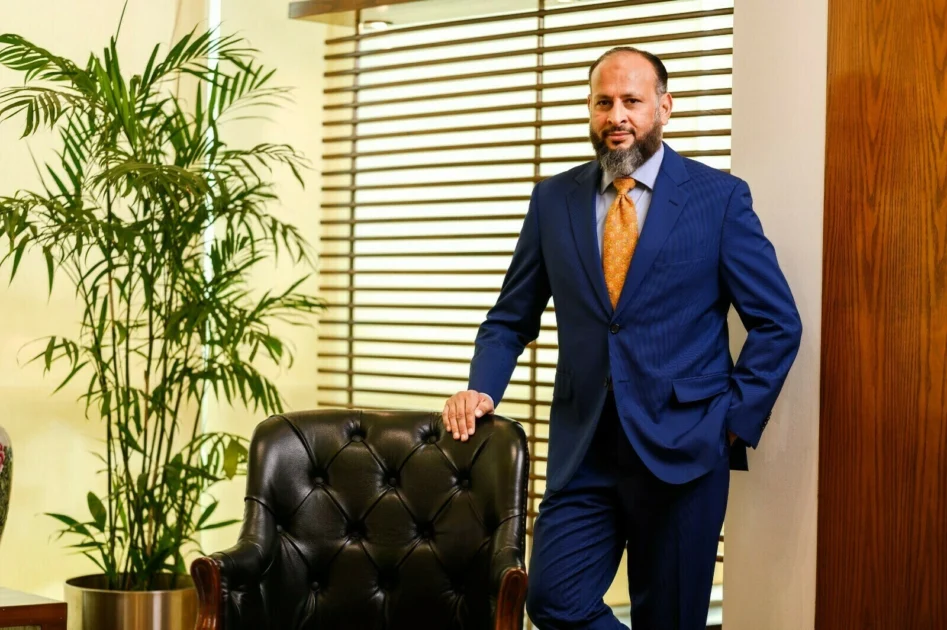- Syed Raza Hassan
- Today

G20 finance chiefs fail to reach joint statement amid Gaza, Ukraine debate

SAO PAULO: Finance leaders from the world’s largest economies failed to agree on a joint statement as they wrapped up talks on Thursday, with divisions over the wars in Gaza and Ukraine overshadowing efforts to forge a consensus on global economic development.
Brazil, host of the meeting of finance ministers and central bank chiefs from the Group of Twenty (G20) major economies, was preparing its own summary in lieu of a shared communique.
Brazilian Finance Minister Fernando Haddad told journalists that a lack of consensus among G20 foreign ministers the week before had “contaminated” talks on the financial track, spoiling efforts to reach a joint statement.
G20 officials debated late into the night and down to the final hours of the meeting how to describe the wars in a joint communique, with Russia and major Western nations at loggerheads over the language, according to people familiar with the matter.
Read more: World leaders served humble millet at G20 gala dinner
Those geopolitical tensions ran throughout the two-day meeting, threatening to overshadow the formal agenda, such as discussion of a global minimum wealth tax on the ultra-rich proposed by Brazil.
German Finance Minister Christian Lindner had said earlier on Thursday there was still hope the G20 finance ministers would agree on a communique with a reference to geopolitical risks to economic growth.
“There was a point when the lack of consensus was so small that it concerned one word,” said Haddad, without giving detail.
The G7 group of rich Western nations and Japan backed the idea of referring to the war “on” Ukraine, while Russia wanted to describe it as the war “in” Ukraine, said two people familiar with the matter.
Read more: Five takeaways from G20 summit on its final day
The G7 countries also backed language describing the war in Gaza as a “humanitarian crisis” with no mention of Israel, the sources said.
Brazilian officials hosting the event had tried to focus talks on economic cooperation to tackle issues such as climate change and poverty, but countries including Germany pushed for a joint statement mentioning wars in Ukraine and Gaza.
Lindner insisted there could be no business as usual amid a war against Ukraine, Hamas and a humanitarian situation in Gaza.
“All of this cannot leave us cold, all of this must be discussed here,” he told reporters on Thursday morning. “A draft has been prepared that reflects the request that the geopolitical issues are discussed.”
Inequality Agenda
Despite the tensions hanging over the meeting in Sao Paulo, Achim Steiner, head of the United Nations Development Program (UNDP), called the start of Brazil’s presidency this year a success, as the only contention of the second day of finance track talks was “over a few words” in a joint statement.
“Brazil had set clear priorities, for example, with their tax proposal,” Steiner told Reuters on Thursday.
As part of efforts to address inequality, Brazil has proposed debates on a global minimum wealth tax that would ensure increased tax contributions by super-rich individuals.
“Even with slightly higher tax rates for the approximately 2,500 billionaires worldwide, very considerable additional revenue could be generated,” he said.
Brazil will aim to craft a statement on international taxation by the group’s July summit, Finance Minister Fernando Haddad said on Thursday. He said he was expecting a report on the matter from the European Tax Observatory, which has advocated for a global wealth tax on the world’s richest people, in contrast with income taxes common in most major economies.
French Finance Minister Bruno Le Maire expressed support on Wednesday for a global minimum tax on the world’s most wealthy.
Japan’s representative Kanda, who is participating in the G20 talks on behalf of the country’s finance minister, said the group has broadly endorsed Brazil’s proposal to highlight steps to address inequality, as this year’s mainstream agenda.






